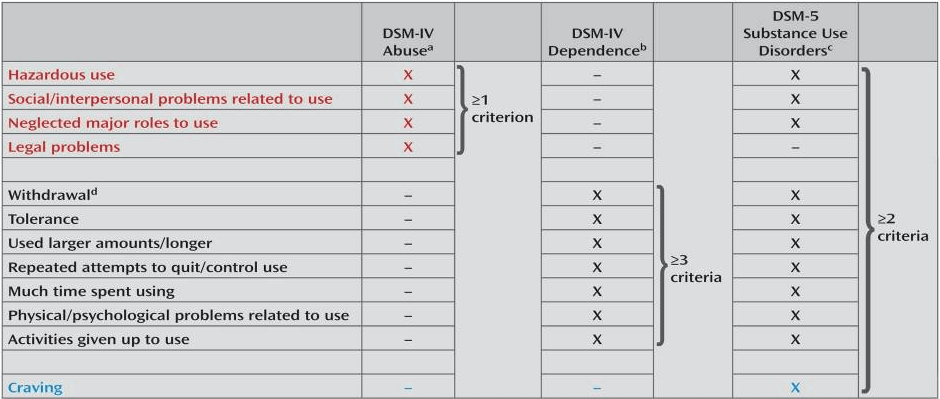

By: Lakeview Health
The National Institute on Drug Abuse (NIDA) defines addiction as a “chronic, relapsing brain disease that is characterized by compulsive drug seeking and use, despite harmful consequences.” Most addiction professionals work with this definition, but the terminology of addiction is changing. In 2013, the American Psychiatric Association introduced the comprehensive diagnosis of substance use disorder in the latest edition of its Diagnostic and Statistical Manual of Mental Disorders (DSM-5), a reference widely used by researchers and clinicians in the United States. Unlike its predecessors, DSM-5 no longer uses dependence and abuse as criteria. Even addiction is no longer considered a specific diagnosis. Substance use disorders “encompass 10 separate classes of drugs,” among them alcohol, cannabis, opioids, stimulants, and sedatives. Many therapists and many people affected by addiction continue to use terms such as addiction, abuse, misuse, and alcoholism despite those changes. In his new report “Facing Addiction in America,” the Surgeon General, Dr. Vivek Murthy, carefully avoids the term abuse, stating, “The United States has a serious substance misuse problem.” The report employs the terminology of the DSM-5 but defines addiction as the “most severe form of substance use disorder, associated with the compulsive or uncontrolled use of one or more substances. Addiction is a chronic brain disease that has the potential for both recurrence (relapse) and recovery.” These variations in terminology can be very confusing for people who consider seeking help for their addiction. “If you’re not sure about the severity of your condition, call and talk to us,” says Robert Walters, Vice President of Intake Services at Lakeview Health. “We are happy to discuss any issues you might have and make a recommendation. During an initial phone call, we can look at the medical history, drug use, and other relevant indicators. It is very common for us to tell people they are not really a candidate for residential rehab, and we refer them to other treatment options.” Misuse is often defined as the use of a substance in a way other than prescribed or recommended. Examples of such misuse include taking more sleeping pills than allowed by the prescription or using a friend’s opioid pain reliever without a prescription to deal with an intense episode of pain. Abuse tends to be a more serious situation because the person is specifically looking for a euphoric response (i.e., to get high). These distinctions are technical and only go so far. “You could take medication as prescribed and be dependent on the drug. On the other hand, you could abuse prescription drugs and not be dependent,” says Walters. “In order to make a correct assessment, we also have to explore relevant issues in people’s lives to find out what the consequences of the drug use are.”
“The DSM-5 may have dropped legal problems as a symptom of drug abuse, but it is still a valid indicator for an addiction problem,” Walters says. So are the current diagnostic criteria, such as “continuing the use of a substance despite its having negative effects” or “repeated use of the substance in a dangerous situation, for example, when driving a car.” “Lakeview Health works with some 150 different insurance companies, which apply a wide variety of categories,” explains Walters. “Some are very restrictive; some will be prejudiced against certain drugs; others treat alcoholism as an illness but do not cover heroin addiction. Lakeview verifies insurance coverage free of charge for clients. Addiction treatment is carrier specific, and we can help find out what options are available.” “It’s most important not to wait for all the negative consequences of drug or alcohol abuse to happen,” says Walters. “Seek help now before it is too late.” Too many people remain in active addiction for a long time until their disease reaches a crisis point. Their families can easily lose sight of what is healthy and what is not because the drug abuse has been going on for such a long time. “Addiction problems can be mitigated if action is taken early on,” says Walters. “Don’t wait for an arrest or an overdose! Don’t wait for your loved one to hit bottom. Seek help now.”





